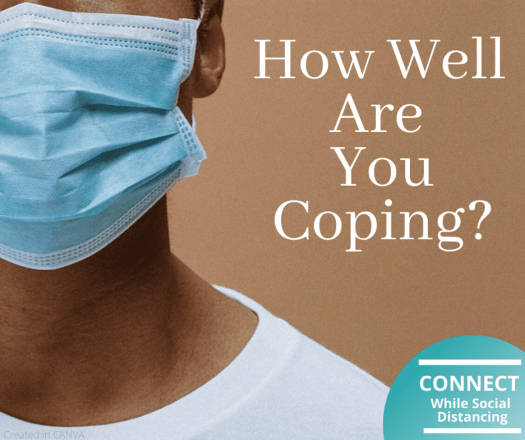Written by: Alicia Cassels, MA
If you are struggling to deal with overwhelming feelings of distress related to COVID-19, you are not alone. Results of a recent U.S. Census Bureau Survey indicate that, unsurprisingly, American adults are experiencing difficulty controlling feelings of worry and anxiety related to the outbreak. The U.S. Census Bureau Household Pulse Survey, being conducted weekly to help shed light on the real-time impacts of COVID-19 among U.S. Households, explores how Americans are coping in terms of health, spending, employment, housing, and education during the crisis.
The Census Bureau is working with the Bureau of Labor Statistics, National Center for Health Statistics, USDA Economic Research Service, Department for Housing and Urban Development, and the National Center for Education Statistics to interview a series of overlapping respondent groups. Each group will participate in the survey for a total of three weeks before being replaced by a new group. Results of the first weekly survey reveal that between twenty and thirty percent of adults are having difficulty controlling feelings of worry and anxiety at this time.
“Adults who responded reported feeling anxious or nervous more than half the days last week or nearly every day 29.7% of the time…
They reported not being able to stop or control worrying more than half the days last week or nearly every day 22.8% of the time.” U.S. Census Bureau
The struggle is real.
Given the impact of the pandemic on finances, health and safety, and relationships, it is no surprise that adults are struggling to cope with emotional distress. According to the NIMH,
“Stress during an infectious disease outbreak can include,”
- Fear and worry about your own health and the health of your loved ones
- Changes in sleep or eating patterns
- Difficulty sleeping or concentrating
- Worsening of chronic health problems
- Worsening of mental health conditions
- Increased use of alcohol, tobacco, or other drugs”
Prolonged stress can impact overall mental health status, which can put individuals at risk for depression and other forms of mental illness, and some individuals may be at greater risk than others. According to the CDC,
“People who may respond more strongly to the stress of a crisis include:
- Older people and people with chronic diseases who are at higher risk for severe illness from COVID-19
- Children and teens
- People who are helping with the response to COVID-19, like doctors, other health care providers, and first responders
- People who have mental health conditions including problems with substance use”
Approximately 18-20% of adults who completed the most recent The U.S. Census Bureau Household Pulse Survey indicated that they had experienced symptoms related to depression in the previous week,
“For measures related to depression, 18.6% of adults report feeling down more than half the days or nearly every day last week, and 21.4% reported having little interest or pleasure in doing things more than half the days or nearly every day last week.” U.S. Census Bureau
If you are having trouble coping, take action.
Free and confidential resources are available to help you manage the stress that may be occurring at this time. One is the SAMSHA Disaster Distress Helpline. The helpline provides free crisis counseling and support services to people dealing with emotional distress related to disasters such as the COVID-19 Pandemic. Services are available 24 hours a day. Call 1-800-985-5990, text TalkWithUs to 66746, or visit the SAMSHA Disaster Distress Helpline online.













